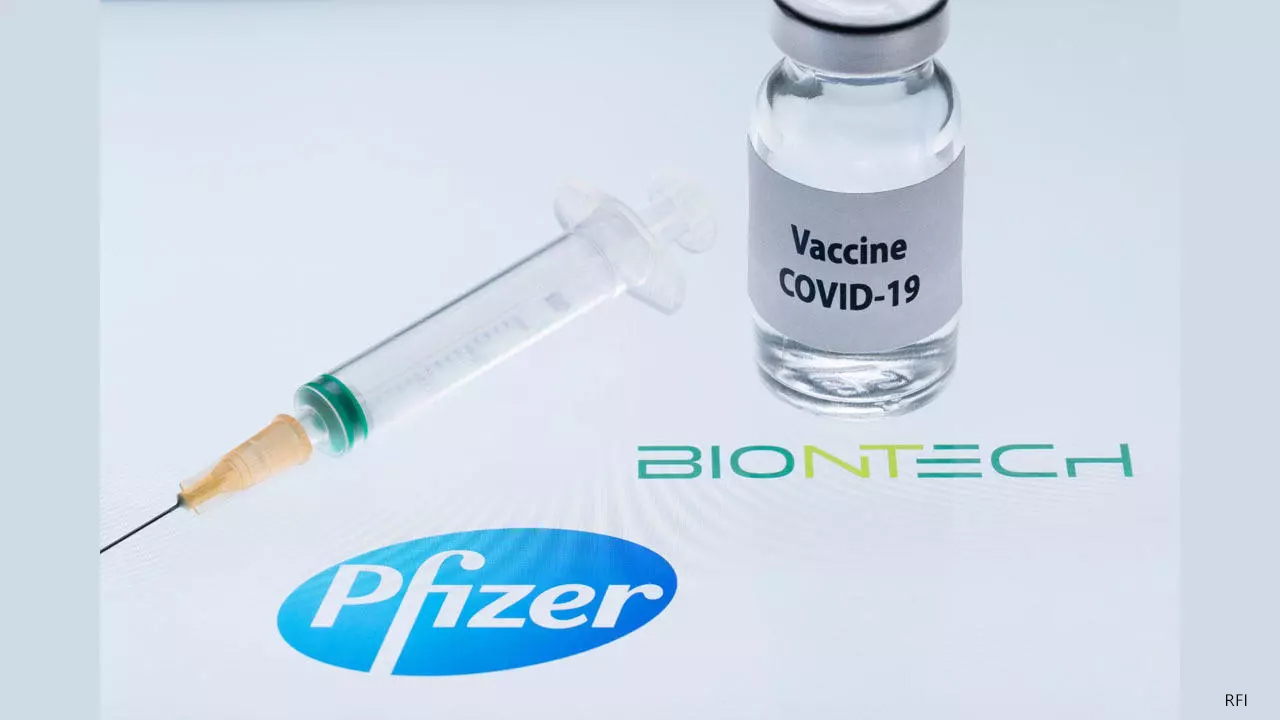New data shows that the first dose of the Pfizer/BioNTech Covid-19 vaccine "provides high levels of protection against infection and symptomatic disease," Public Health England (PHE) said in a press release on Monday.
PHE's Siren Study, which was carried out on healthcare workers aged under the age of 65, found that one dose of the vaccine reduced the risk of infection by 72% after three weeks, while two vaccine doses reduced the risk of infection by 85%. This high level of protection extended to the B.1.1.7 coronavirus variant first identified in the UK in December.
Health workers were tested for Covid-19 infection every two weeks using PCR tests and twice a week with lateral flow tests, Dr Susan Hopkins, strategic response director at PHE, explained, meaning "there was a lot of asymptomatic testing," she said.
"Overall we are seeing a really strong effect to reducing any infection: asymptomatic and symptomatic," Hopkins said during a press conference held by the UK's Science Media Centre on Monday.
PHE also analyzed routine testing data based on the symptomatic disease in over 12,000 people, which showed that one dose of the Pfizer/BioNTech vaccine was 57% effective against symptomatic COVID-19 disease in those aged over 80 four weeks after the first dose. This increased to 88% one week after the second dose.
Early data has also shown that vaccinated people who are subsequently infected are far less likely to die of, or be hospitalized with, the virus. People over the age of 80 who were infected post-vaccination were 41% less likely to be hospitalized with the virus and 57% less likely to die of it.
PHE predicted that protection against severe disease was likely to be over 75% in those who have received one dose of the Pfizer-BioNTech vaccine.
"The good sign is overall we are beginning to see a decline in hospitalizations and deaths in those vaccinated age groups [and] at least some is attributable to the vaccination program," Dr Mary Ramsay, head of immunization at PHE, said during the press conference.
She said that while the UK's current lockdown had played a part in the decline in hospitalizations, "the faster speed in decline can be attributed in some aspects to the vaccination program."
In the PHE release, Ramsay cautioned that despite the encouraging signs "we don't yet know how much these vaccines will reduce the risk of you passing Covid-19 on to others," adding that vaccinated people should continue to follow stay-at-home orders.
The UK has placed its focus on vaccinating as many high-risk people as possible with the first dose.
Ramsay said the findings "reinforce the policy of giving that single dose to more people to prevent more deaths and more admissions now and then go back later and get the second dose which will give them long-lasting protection."
UK Health Secretary Matt Hancock said it was "extremely encouraging" that data supported the UK government's "decision to maximize the number of people vaccinated with a single dose."
"Protection against severe disease is at least 75% or higher and that corresponds with what you see from Scotland," Ramsay said at the press conference in reference to early data from a Scottish study on the effect of Pfizer and Oxford-AstraZeneca shots in the community.

 Pfizer vaccine shows promise against Coronavirus
Pfizer vaccine shows promise against Coronavirus










.jpeg)


.jpeg)



.jpeg)
.jpeg)






.jpeg)





